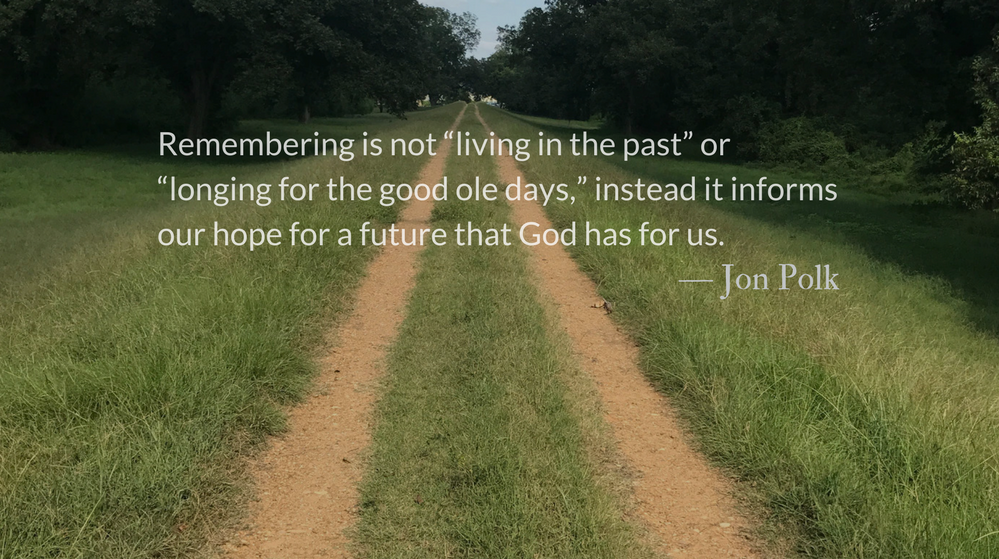Scripture: Esther 9:20-22
Mordecai recorded these events, and he sent letters to all the Jews throughout the provinces of King Xerxes, near and far, to have them celebrate annually… the time when the Jews got relief from their enemies, and… when their sorrow was turned into joy and their mourning into a day of celebration. He wrote them to observe the days as days of feasting and joy and giving presents of food to one another and gifts to the poor.
Reflection: Forward-Looking Remembering
By Jon Polk
A visit to the National Mall in Washington, D.C. is a testament to the significant power of memory. In the heart of the United States’ capital are numerous monuments dedicated to the memory of great historical figures – Lincoln, Washington, King and others – and significant human sorrows – World War II, the Vietnam War, the Holocaust. Standing in front of the impressive white marble statue of the great American president Abraham Lincoln, one cannot help but be overwhelmed with a sense of history that goes far beyond the memory of personal life experiences.
Many of us have our own memorials in a prominent place in our home: the refrigerator door. There on that sleek magnetic surface, the faces of family and friends stare back at us from treasured moments that have come and gone. There, kindergarten artwork is treated like a rare, priceless Van Gogh. There we find notes and cards that remind us of the ones we love.
At the conclusion of the story of Esther, her uncle Mordecai instructs the Jews to annually celebrate by remembering the attempted genocide and their escape from it. This inaugurates the Jewish Festival of Purim, a memorial of the time when sorrow turned to joy and mourning to celebration.
Remembering is not “living in the past” or “longing for the good ole days,” instead it informs our hope for a future that God has for us. At Purim, the Jews were to look back to the story of Esther and their deliverance in order to look forward to find a hope for their future. This remembering caused them to not only feast and celebrate, but also to give gifts to the poor. Memory of God’s favor on us should compel us to share that same grace with others.
It is often noted that Esther is the one book in the Bible where God is not specifically mentioned. Reading the story with the benefit of hindsight reveals that God was indeed present and working behind the scenes.
We would be wise to regularly recall God’s intervention and provision in our own lives, giving thanks and praise for how God has delivered us and cared for us, especially in those times when we may have not been able to immediately recognize his presence.
What spiritual memories are we hanging on the refrigerator doors of our hearts that we look to regularly for hope and to say, “Thanks be to God”?
The Greeting
Your testimonies are very sure, and holiness adorns your house, O Lord, forever and for evermore. — Psalm 62.6
– From The Divine Hours: Prayers for Autumn and Wintertime by Phyllis Tickle.
Full prayer available online and in print.
Today’s Readings
Esther 9 (Listen – 5:34)
Romans 4 (Listen – 4:08)






